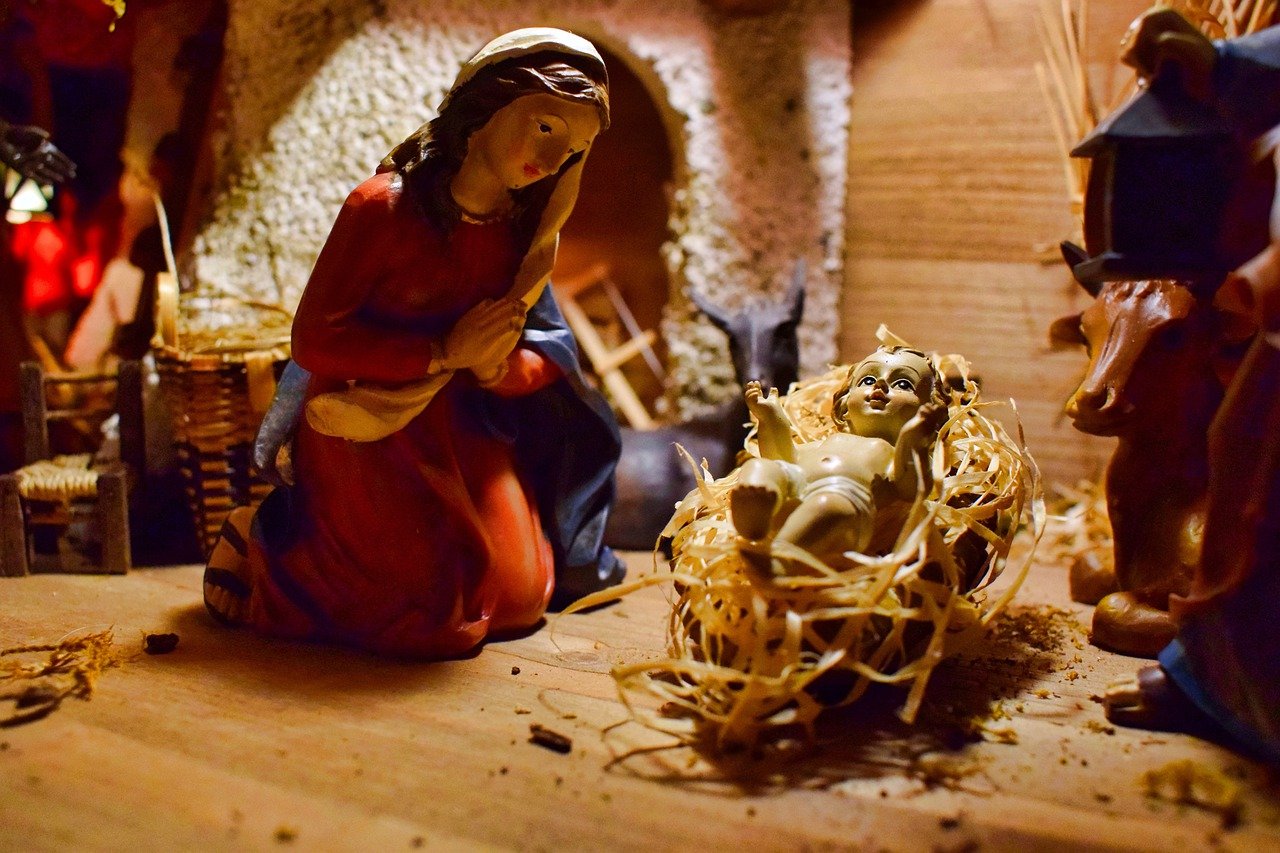Isaiah 62:11-12 (RM, “Mass at Dawn”) or 6-12 (RCL); Psalm 97; Titus 3:4-7; Luke 2:15-20 (RM) or [1-7] 8-20 (RCL.)
It seems Christmas is rife with Scripture readings we’ve heard before, carols and hymns we’ve sung before, and good wishes which, while welcome, we’ve heard (and wished others) before. Sometimes, something new turns up, a startling “I never saw that!” insight. Last week we looked at the metaphorical phrase “the Father’s womb.” Here’s what I discovered this week, in Luke’s Nativity account.
In the words of commentator Jillian Engelhardt, “Luke uses language to describe Jesus that imperial propaganda applied to Caesar Augustus.”
How so? It comes from an inscription written on two tablets in the year 9 BCE (BC), originally found in the old marketplace in Priene, a Greek city in what is now western Turkey. The tablets are currently on display in a Frankfurt museum.
The text reports a pronouncement by the Roman high priest Apollonius of Menophilus Azanitus, that reads in part:
“Since Providence, which has ordered all things and is deeply interested in our life, has set in most perfect order by giving us Augustus, whom she filled with virtue that he might benefit humankind, sending him as a saviour, both for us and for our descendants, that he might end war and arrange all things, and since he, Caesar, by his appearance…surpassing all previous benefactors … and since the birthday of the god Augustus was the beginning of the good news for the world that came by reason of him… But the birthday of the god was for the world the beginnings of tidings of joy on his account.”
So what stands out? The Roman emperor Caesar Augustus is described as a saviour sent by Providence on behalf of his people and their descendants, the one who ends war and exerts all power. His birthday (September 23) was to become the official start of the New Year, because it was the beginning of the “good news” (this would be euanggelion or Gospel in Greek.) The birth of the emperor, a sort of messianic absolute monarch, was to usher in an era of peace and prosperity.
So did Luke just copy this text and tweak it? Not necessarily. This was conventional thinking in the Roman Empire at the time.
But look at what Luke did with it to give meaning to the birth of Jesus. What sort of emperor would be born in a cow barn and put to sleep in a feeding trough? Wouldn’t the great royal birth announcement be sent first to the nobility and high officials of the land, and not to scruffy shepherds? Luke has the angels that spoke to the shepherds using the same words – “savior” and “good news” as in the Greek inscription about the emperor. The good news came first to those who were the most lowly, the least highly regarded, in their own society.
But the peace in the greeting of the angels, the peace brought by Christ, is completely different from that of the Pax Romana, founded on violence and military might. Even the “kingdom” is radically different. Christ was a Saviour on the level of humanity’s relationship to the transcendent and immanent God.
The idea of Christ as a monarch rattles conventional assumptions. Engelhardt writes, “[Today] the notion of Jesus as king is a spiritualized metaphor devoid of much of its political emphasis. But in the ancient world, a king held real power for real people. A king’s choices had impacts on food distribution, health, wealth distribution, and more.” The analogy may be built on politics and government, but the deeper reality is not.
Ironically, a feast of the Nativity of Christ came to be celebrated in the ancient church on December 25th just at the time when Christians were accommodating themselves to Roman imperial culture, after centuries of intermittent persecution. And the Empire was already declining, afflicted by internal rot. It would soon fall.
Maybe the master’s tools really can demolish the master’s house. Maybe justice can be drawn out of injustice.
With best wishes to all, for a holy and joyful Christmas feast that ushers in, as Paul writes, the peace that passes all understanding.
© Susan K. Roll
Susan Roll retired from the Faculty of Theology at Saint Paul University, Ottawa, in 2018, where she served as Director of the Sophia Research Centre. Her research and publications are centred in the fields of liturgy, sacraments, and feminist theology. She holds a Ph.D. from the Catholic University of Leuven (Louvain), Belgium, and has been involved with international academic societies in liturgy and theology, as well as university chaplaincy, Indigenous ministry and church reform projects.





“A thrill of hope, the weary world rejoices.”